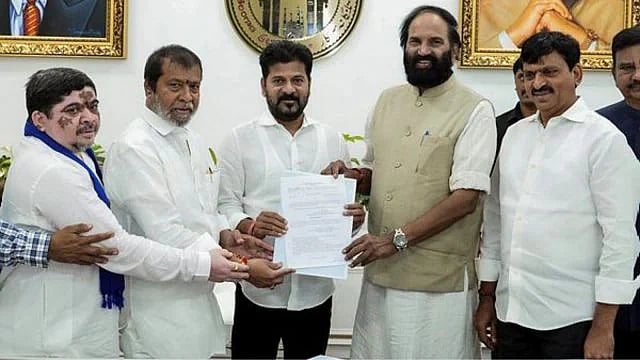Telangana First Indian State To Implement SC Sub-Categorisation: A Welcome Step Towards Equity | X// @revanth_anumula
The Telangana government has taken a pioneering step by becoming the first state to notify the categorisation of Scheduled Castes (SCs) into three distinct groups. This decision follows the Supreme Court’s landmark verdict in August 2024, which permitted such classification, recognising the stark disparities within the SC community itself. Seventy-five years after Independence, it is an uncomfortable truth that the benefits of reservation have not reached all sub-castes of the SC community equally. A few relatively better-off groups among them have been able to repeatedly access government jobs, educational seats, and other entitlements. Meanwhile, the most marginalised remain on the fringes, unable to compete with their more advanced brethren even within the SC umbrella.
It was with this understanding that the Telangana government commissioned a comprehensive study on the economic, social, and political status of various SC sub-castes. Based on this, it has created three groups: Group 1 includes 15 sub-castes considered the most backward, who will now get one per cent of the reserved jobs, despite constituting only 0.5 per cent of the population. Group 2 and Group 3 include 18 and 26 sub-castes, respectively, with job quotas of nine per cent and five per cent. This is not a radical overhaul but a fine-tuning of the system to ensure that the most disadvantaged among the SCs are not permanently left behind. Telangana’s move is both bold and compassionate; it acknowledges the internal hierarchies and imbalances that persist within marginalised communities. Other states would do well to emulate what Telangana has done. Social justice cannot be a static concept; it must evolve with changing socio-economic realities. However, while categorisation is a step forward, it must be accompanied by a broader rethinking of how we support disadvantaged communities.
Government jobs, once the cornerstone of social upliftment, are shrinking. The rise of technology, the decline of clerical roles, and the growth of contractual work have narrowed the employment opportunities in the government sector. In this context, reservations alone cannot be a panacea. It is crucial to think beyond quotas and address the roots of systemic exclusion. Education is the true leveller. Unfortunately, successive governments have abdicated responsibility by allowing private players to dominate the sector, making quality education inaccessible to the poor. A robust scholarship programme, along with targeted admissions in higher education, is crucial. So, too, is the need to nurture entrepreneurial talent among SC youth, creating opportunities for self-employment, startups, and skill development through training and financial incentives. In short, what is needed is a multi-pronged approach. Telangana has lit the torch; others must carry it forward—not just in words, but through thoughtful policy and sustained action.
